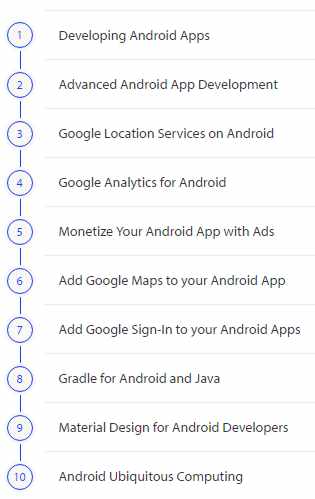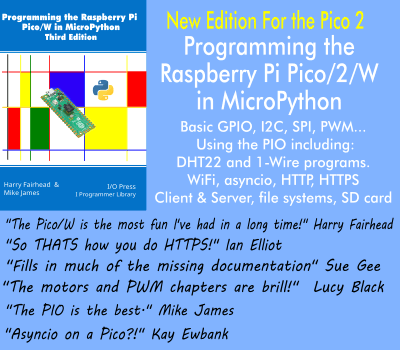| Learning Android Online |
| Written by Sue Gee | |||
| Wednesday, 24 August 2016 | |||
|
With Android clearly the dominant app market there's obvious interest in learning about it, both on the part of beginners and those who already program in one of more languages. Joining a MOOC seems a good route to follow and there are many to choose from. So you want to know about Android. This round up of MOOC opportunities looks at the range on offer from Udacity and Coursera for students with differing requirements. First, do you already program in Java? If you are a complete beginner then learning Java is the first step - it can possibly be sidestepped if you are proficient in some other language. One of the problems with Android is that it is an ever-shifting platform. Moreover its development environment Android Studio has recently undergone significant change, not only between version 1 and version 2, which is the latest stable version, but again between 2 and 2.2, which having been in technical preview for some months is now in beta. This causes a problem, not only for those working on consumer-facing products but also for anybody learning Android now with a view to working with it some months down the line. A recent review of the previously 5-star rated Developing Android Apps, the first course in the Android Developer Nanodegree gave it just 2 stars and explained: Katherine Kuan is a great instructor as always, clear and consistent. However at this point in time (mid-2016), the course is not workable for the main reason that it is outdated, and therefore the code provided by Udacity cannot even compile. The course has been outdated for more than 6 months and if you look at the relevant forum, you will come across many posts made by students who are confused and frustrated at the outdated code vs developments in Android Studio. I was one, and like a couple of people, left the course midway to take up an Android course on Udemy With these two caveats in mind here are some of the options to consider: Udacity, which partners with Google for its course content recently added a Android Basics Nanodegree to be taken in preparation for its longer established Android Developer Nanodegree the intent of which is to learn the Java languages at the same time as building apps - ten apps to be precise. So far there are three supporting courses (which can be studied free, whereas enrollment in the Nanodegree progam costs $199 per month after a one-week free trial):
with a fourth course coming soon. The Android Developer Nanodegree is inteneded for those with 1-2 years programming experience and is similarly project based (9 apps) with 10 supporting courses varying in length from 10 weeks to 2 weeks and totalling 42 weeks.
Coursera now has a 5-course Andoid App Development Specialization for beginners from Vanderbilt University, the first course of which started on August 23rd, and will re-run regularly Its blurb states: This Specialization enables learners to successfully apply core Java programming languages features & software patterns needed to develop maintainable mobile apps comprised of core Android components, as well as fundamental Java I/O & persistence mechanisms. The courses that make it up are:
The fifth course is the Capstone which: will integrate material from throughout the Specialization to exercise and assess the ability of learners to create an interesting Android app by applying knowledge and skills learned in previous MOOCs, including Java programming features, Android Studio tools, Android Activity components, Material Design, file I/O and data persistence, unit testing, and software patterns. If you already program in Java and want a shorter commitment Coursera has two other options: Build Your First Android App is a project-centered course for learners who have prior experience of Java and uses Android Studio as its IDE. It is a 4 weeks with 10 hours of study, 10 hours of active project work. However if you enroll for a verified certificate and don't complete in one session you can roll onto the next one. If you audit for free then you don't have access to the graded parts of the course. Programming Mobile Applications for Android Handheld Systems has two modules both of which takes a lecture-based approach, after which in the fifth and final week you build an app from scratch. In Part 1 you learn how to set up Android Studio, work with various Activities and create simple user interfaces to make your apps run smoothly. The follow-on course (Part 2), also taught by Professor Adam Porter of the University of Mayland, covers threads and networking, handling notifications, using multimedia and graphics and incorporating touch and gestures into your apps and again you build an app from scratch in Week 5.
More InformationAndoid App Development Specialization Programming Mobile Applications for Android Handheld Systems Related ArticlesAndroid Nanodegree From Google & Udacity Coursera Offers CS Specialization Certificates To be informed about new articles on I Programmer, sign up for our weekly newsletter, subscribe to the RSS feed and follow us on Twitter, Facebook, Google+ or Linkedin.
Comments
or email your comment to: comments@i-programmer.info |
|||
| Last Updated ( Wednesday, 14 September 2016 ) |





